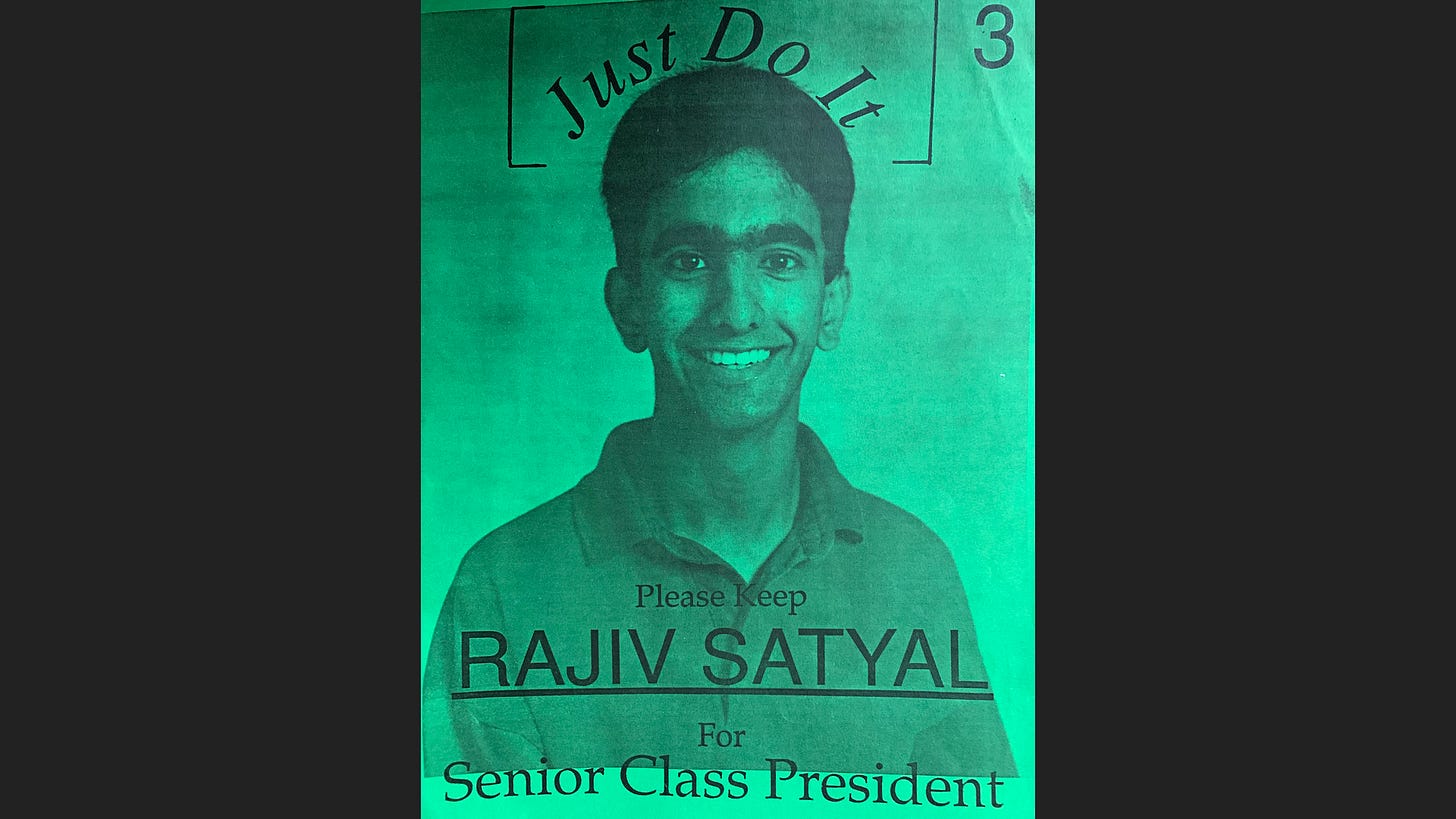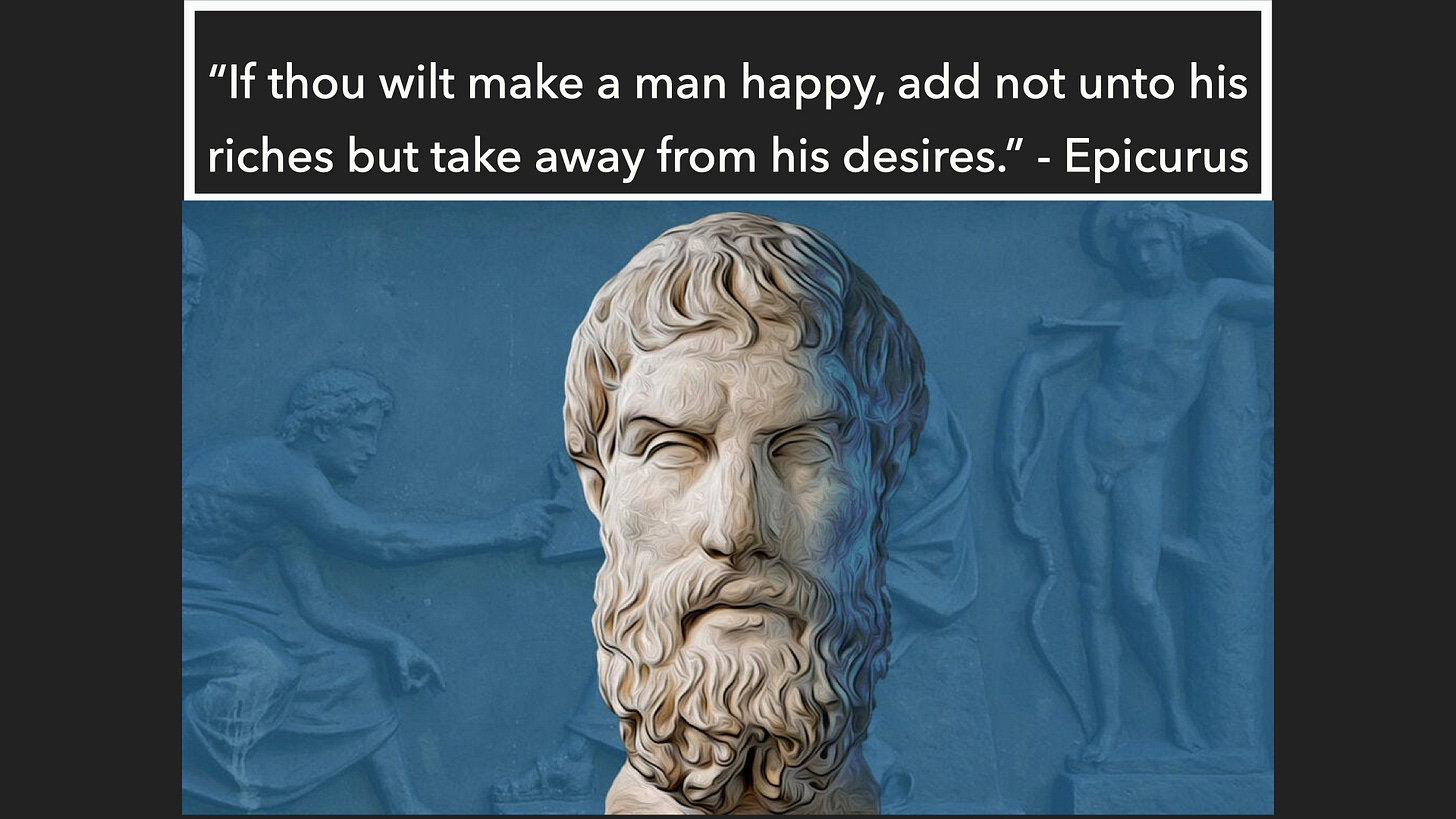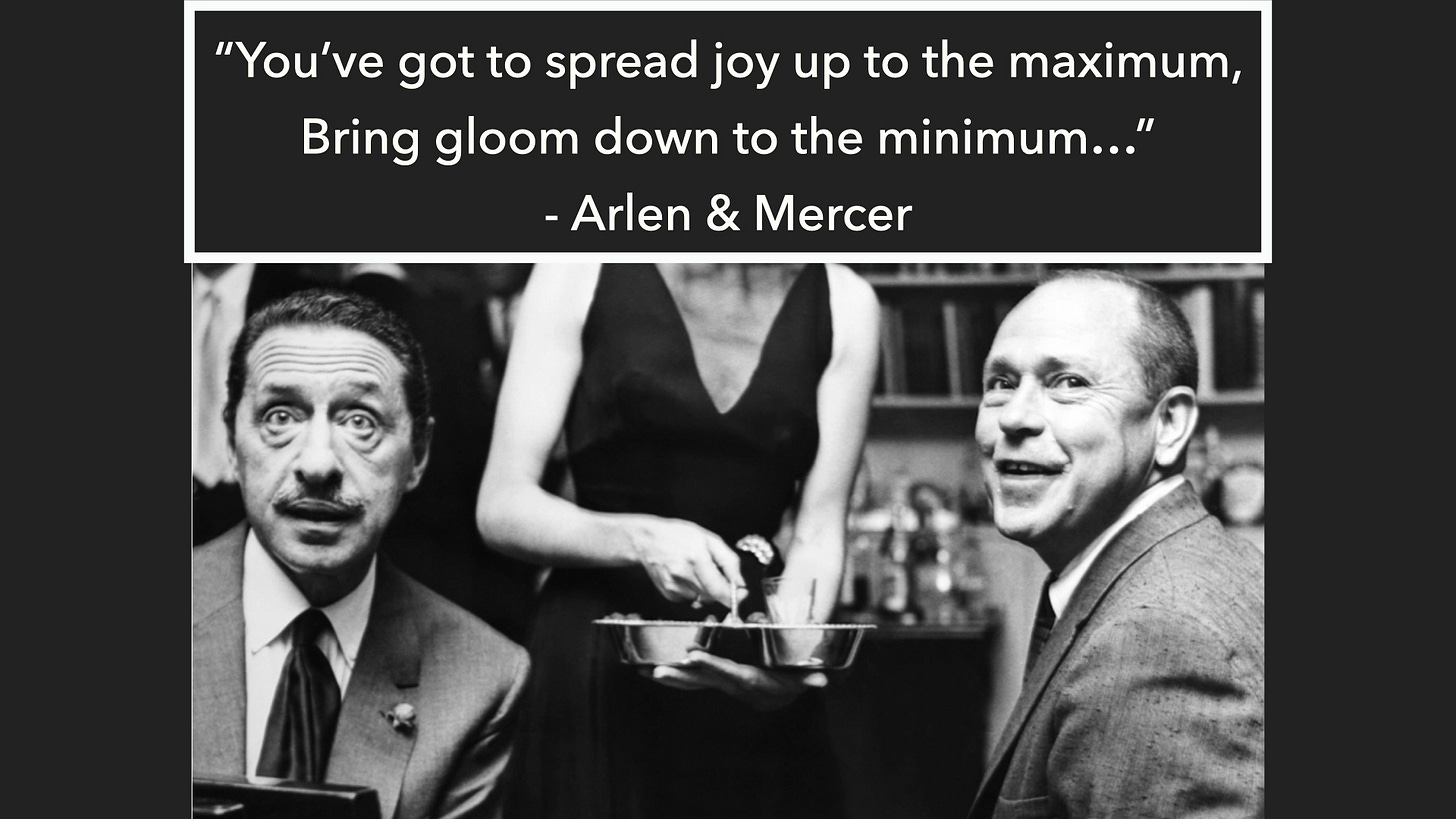Disgruntled
February 2025: Happy Valentine's Day!
Last month, I began a series about the new talk I’ve been giving…
GRUNTLED: A Comedian’s Take on Happiness
Here’s Part II…
Why are we disgruntled? Why are we often so dissatisfied? To some extent, it’s the water in which we swim. I’m gonna say something perhaps a bit controversial and un-PC (but hey, it’s the era for it now):
The Maslow Paradox
It’s something I call “The Maslow Paradox.” Especially at a high socioeconomic status, having an elevated starting point is a gift and a curse. As they say, “To whom much is given, much is expected.” The higher up on the Maslow hierarchy of needs chart one is, the harder it is to find happiness.
To me, happiness is about the delta.
As the child of immigrants, I can see it from this perspective a little more clearly. When I see a janitor, I don’t see a guy sweeping up trash. Well, I do see that. But I also see a man who may have started off in a small village in Ireland, India, or Israel. His getting to America and raising a family is an enormous delta—he could be KILLING it.
Like most people in our generation, I spend a lot of time thinking about what I’m supposed to do with my life. My Mom once pointed out what a huge privilege that is. She said, “We got to this country and kept our heads down and did what we had to do. We were focused on our current meal, our current day of work, our current child—not the “next” of anything.”
And isn’t this just an embodiment of staying in the moment? But here’s the big “but” of my parents’ generation: Our parents said they just did it. But they didn’t. Their mental health often wasn’t good.
Add to that the fact the companies at which we work hire ambitious people. We specifically are always looking for more and stronger and bigger and taller.
Journey, Not Destination
I took turning 30 years old really hard. So hard I moved from Ohio to California. 40 years old, not at all. 20 and 10 (from what I remember) were easy.
At 30, I worried about what my 16-year-old self would think of me. Would he be impressed? I concluded that he’d be disappointed. I hear people do this all the time: “When I was a teenager, I never thought this is how my life would turn out.” Exactly. But what I failed to realize is this:
Why would a teenager know more about being 30 than a 30-year-old?
Things might not turn out the way you wished, but when you were doing all that wishing, you were so much earlier in your journey.
So many people have arrived at a similar conclusion about enjoying the journey vs. the destination… a tennis champ…
And a funny lady…
I think this cuts to the core of why it’s so hard to be happy.
Perspective
I’m a die hard capitalist. Capitalism has created more wealth and lifted more people out of poverty than any force on Earth. But one massive downside is that it feeds on the human desire for MORE. It has become the American way. You can’t be content: how will advertisers sell anything to you? American society doesn’t want us to be happy. “Keeping up with the Joneses'' is a cliché for a reason. We’re always looking up at what people have.
In the States, you can live in a nice Cincinnati suburb like Mason, take I-71 down to P&G, shop at Kenwood Towne Centre (so rich it places extra letters in its middle word and uses an old spelling of its last), and never have to interact with any poor people.
It’s not like that in India, where it feels like all three Back to the Future movies are jammed into one TikTok video: you’re simultaneously in the future, in the past, and in the Wild West all at the same time. You’ll see next year’s model of electric Range Rover driving down a dirt road trying to avoid hitting stray cows.
You can’t isolate yourself from poverty so you’re always aware of what you have, which makes it easier to be grateful. You can always look over and go, “At least my life is better off than that.”
Some Math
Here’s what I’ve learned about happiness…
50% of our happiness is set by our genes, 10% by life circumstances beyond our control, and 40% by our own actions. If you’re dealt a bad hand, then yes, it might be hard for you ever to find happiness. But if you’re on the cusp, then 40 percentage points is a lot, and it can be enough to swing you even from 35% to 75%.
Sometimes, you don’t need to do something different. You need to do what you’re doing differently. You might not need to quit P&G and move to LA to be a standup comic. Often, you don’t need an overhaul; you just need a tweak. It’s tough to do since our impulse is to swing the pendulum.
One of P&G’s internal mottos:
Make a little, sell a little, learn a lot.
Make changes in degrees. Take it less seriously… don’t get caught up in it… etc.
This leads us to a point illustrated by a guy in the 4th century…
More Math
… by two guys in the 1940s…
… and by four guys in the 1990s.
Turns out there is a happiness formula:
Happiness is a quotient. I want to be careful with “expectations” because “lowering your expectations” has become kind of worn-out. It’s really…
“You have to increase the numerator… decrease the denominator…”
How? Tune in next month…
Rajiv Satyal is a comedian and a Happiness Consultant. He resides in LA.













